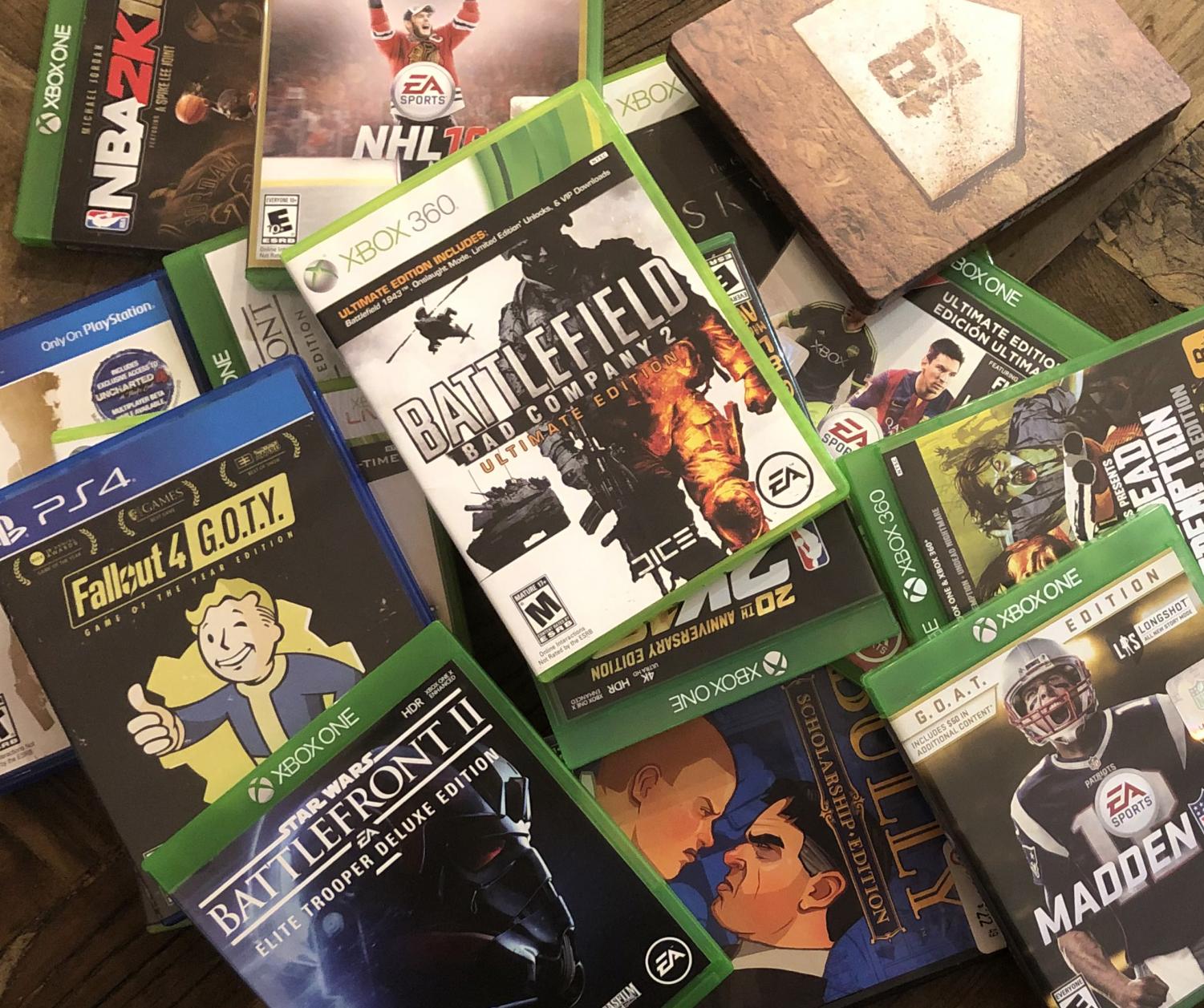
Charging More for a Yearly Release
In the video game industry, prices for games are increasing with the introduction of special editions and other perks for paying more money.
October 25, 2019
The video game industry has introduced many new practices over the past decade meant to increase profits as much as possible. Large companies such as Electronic Arts (commonly referred to as EA) and Ubisoft have started to make special editions of video games or other games with many pre-order bonuses to influence people to buy a game. Now more than ever, it is important for people to know what they are purchasing if they spend more money on a video game than the base price.
On Amazon, the prices of video games had a consistent increase after the integration of special editions of video games. “Madden NFL 20,” released for 60 dollars on August 2 of this year, offered incentives to purchase a subscription to publisher EA’s service “EA Access” to play the game three days earlier than the general public. The special edition of the game called the “Madden NFL 20 Superstar Edition,” was priced 20 dollars more than the standard edition and gave players more perks in the game’s prized mode “Ultimate Team.”
The practice of releasing special editions of video games has only increased over time. In the past, the “Madden NFL” series released only one edition of their game every year. Overtime, EA introduced special editions of their games along with the introduction of their “Ultimate Team” game mode. Freshman Miles Edmonson thinks that pre-orders for video games are unhelpful to consumers, as people have no way to test to see if a game is good before the game releases.
“I think pre-ordering special editions are only worth it if you play competitively or if you make money playing video games,” Edmonson said. “I do not purchase new video games often if there are older video games that are the same as newer games.”
On Amazon, people can also purchase the game “Assassin’s Creed: Odyssey” for 60 dollars at launch, along with the “Deluxe Edition” for 20 dollars more, including extra in-game gear as well as currency boosts. The base game was released alongside four separate special editions of the game, all of which offer exclusive perks. Junior Liam Mash believes that pre-ordering a game is reliant on the exclusivity of a pre-order bonus.
“If I am not able to get it later down the line, then I would warrant spending a little extra money for a game,” Mash said. “Otherwise it depends on if I pre-order a game.”
Many online players find the business practices used by companies like EA and Ubisoft as a net negative for the consumer. In an interview with gamesindustry.biz, the executive vice president of statistics at EA, Matt Bilbey, tried to address the public by attempting to garner sympathy on their practices.
“25 years at EA and I still struggle with the external perception that we’re just a bunch of bad guys,” Bilbey said. “We love making and playing games. Unfortunately, when we make mistakes on games, the world knows about it because it’s of a size and scale.”
A major way that a consumer can still experience new video games in a cheaper way is to wait before buying a newly released game. “Madden NFL 20” has gone down in price by ten dollars over the span of three months and many retail stores marked down the game to the same price weeks after the release of the game. “Assassin’s Creed: Odyssey” was released more than a year before the time of writing, but the game still averages a price of 36 dollars on Amazon.
The video game industry has continued to push the practice in other ways like microtransactions and downloadable content that extends the number of objectives in a game. Some companies like CD Project Red, attempt to give consumers more for their pre-order with special trinkets and game maps that come with the standard 60 dollar price. The practice will not decrease in the future and it is important for a consumer to know the ramifications of purchasing a game early or for more money than the base price.


